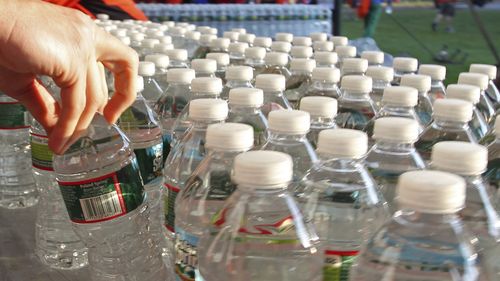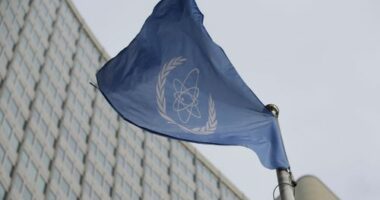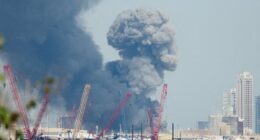Share this @internewscast.com
In a small town in France, residents have been prohibited from consuming tap water because of contamination by “forever chemicals.” However, according to one expert, Australians are not likely to encounter a similar situation.
Testing conducted in Saint-Louis, which is located near the Swiss border, revealed that the water contained more than four times the permissible concentration of per- and poly-fluoroalkyl substances (PFAS). This contamination has been connected to the use of firefighting foam at the nearby Basel Mulhouse Freiburg Airport.
As a consequence, authorities have instructed approximately 60,000 residents, including infants, pregnant and breastfeeding women, as well as immunocompromised individuals, to refrain from drinking the tap water.

PFAS are a group of more than 4000 manufactured and extremely long-lasting chemicals used in a wide range of industrial and consumer products, including firefighting foam, non-stick cookware, waterproof clothing and food packaging.
But they’ve also been linked to a range of health issues, from raised cholesterol levels to some forms of cancer.
France is far from the only nation to find itself battling PFAS levels.
But, according to RMIT chemistry professor Oliver Jones, Australia is unlikely to be hit by water contamination high enough to cause harm.
”The contamination of PFAS in drinking water in Saint-Louis, France is clearly concerning, especially for those directly affected,” he said.
“However, while headlines like ‘PFAS at four times the recommended limit’ sound alarming, the actual limit is incredibly low and in France, no harm has been demonstrated yet.
“A tap water ban or similar situation is unlikely to happen in Australia, except in the event of a serious industrial accident.
“Most potable water supplies in Australia either have no detectable PFAS or concentrations below even the recently introduced guidelines for Australian drinking water.”

Exactly what health issues the chemicals cause, and how serious they can be, is still unknown.
“To date the evidence on health effects of PFAS has been uncertain, draws on a mix of animal and human studies, and can be interpreted in different ways,” Australia’s National Health and Medical Research Council (NHMRC) says.
PFAS have been linked to some types of cancer, including kidney, testicular and prostate, but the NHMRC says studies in the area “remain conflicting and associations have only been observed in high exposure groups”.

“We often overlook the fact that the mere presence of something does not mean it will automatically cause harm,” Jones said.
“For example, we know we can get skin cancer from UV light, but that does not mean we will get cancer as soon as we go outside.
“Although there are places in Australia where extensive use of PFAS-containing fire-fighting foams has occurred, for example airports or firefighting training grounds, these areas are known and managed.”












